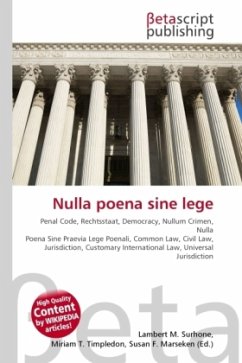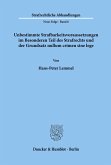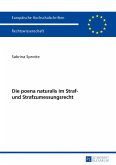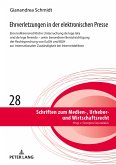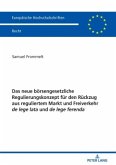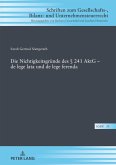High Quality Content by WIKIPEDIA articles! Nullum crimen, nulla poena sine praevia lege poenali (Latin, lit. "No crime, no punishment without a previous penal law") is a basic maxim in continental European legal thinking. It was written by Paul Johann Anselm Ritter von Feuerbach as part of the Bavarian Criminal Code in 1813. The maxim states that there can be no crime committed, and no punishment meted out, without a violation of penal law as it existed at the time. Another consequence of this principle is that only those penalties that had already been established for the offence in the time when it was committed can be imposed. Thus, not only the existence of the crime depends on there being a previous legal provision declaring it to be a penal offense (nullum crimen sine praevia lege), but also, for a specific penalty to be imposed in a certain case, it is also necessary that the penal legislation in force at the time when the crime was committed ranked the penalty to be imposed as one of the possible sanctions to that crime (nulla poena sine praevia lege).
Bitte wählen Sie Ihr Anliegen aus.
Rechnungen
Retourenschein anfordern
Bestellstatus
Storno


